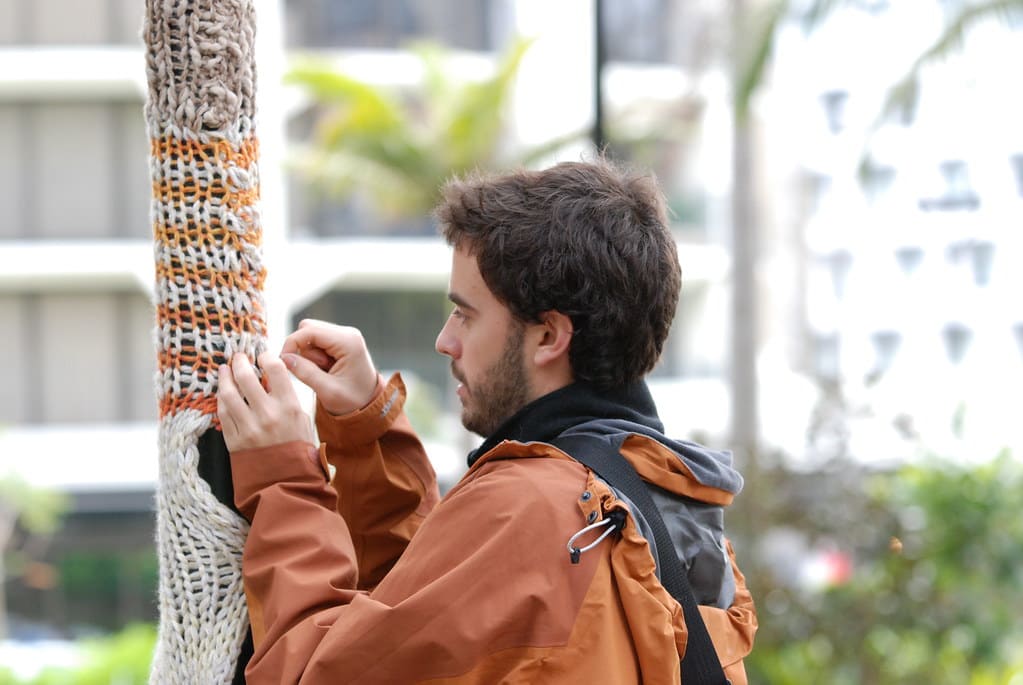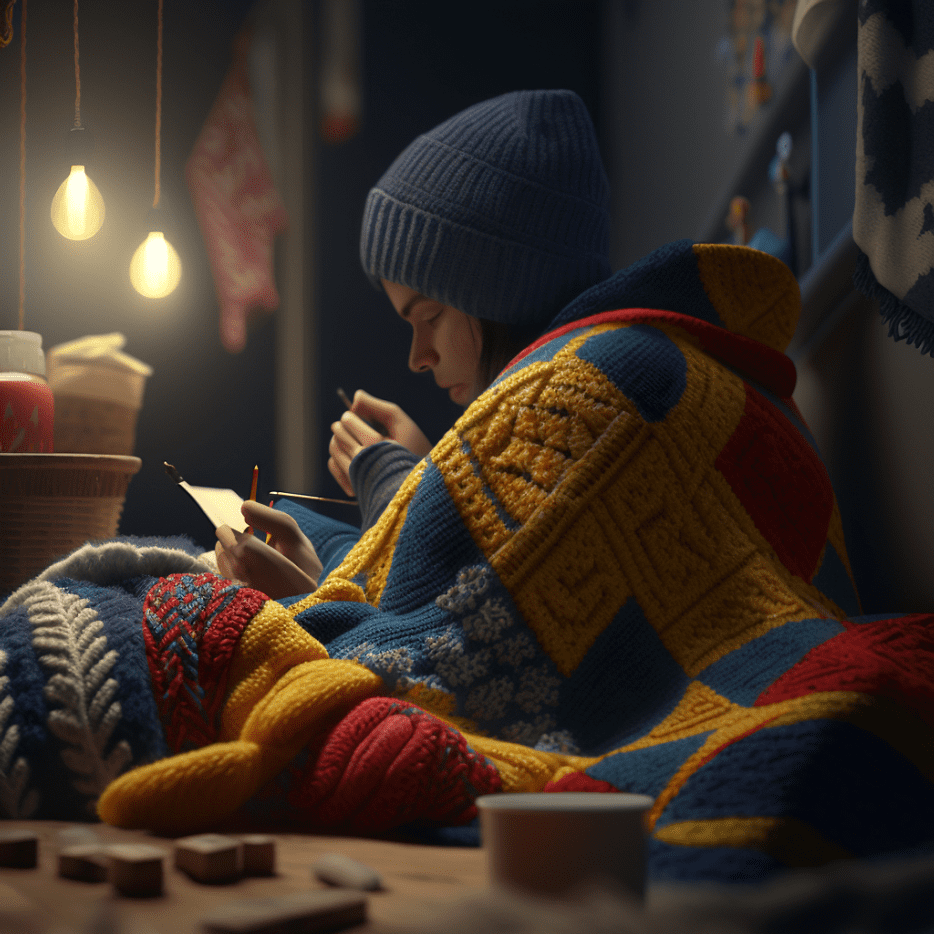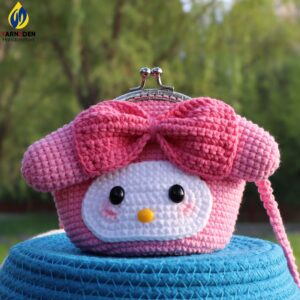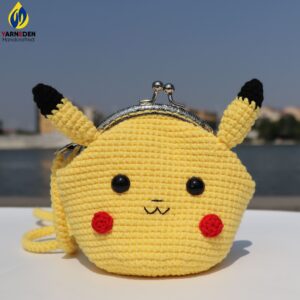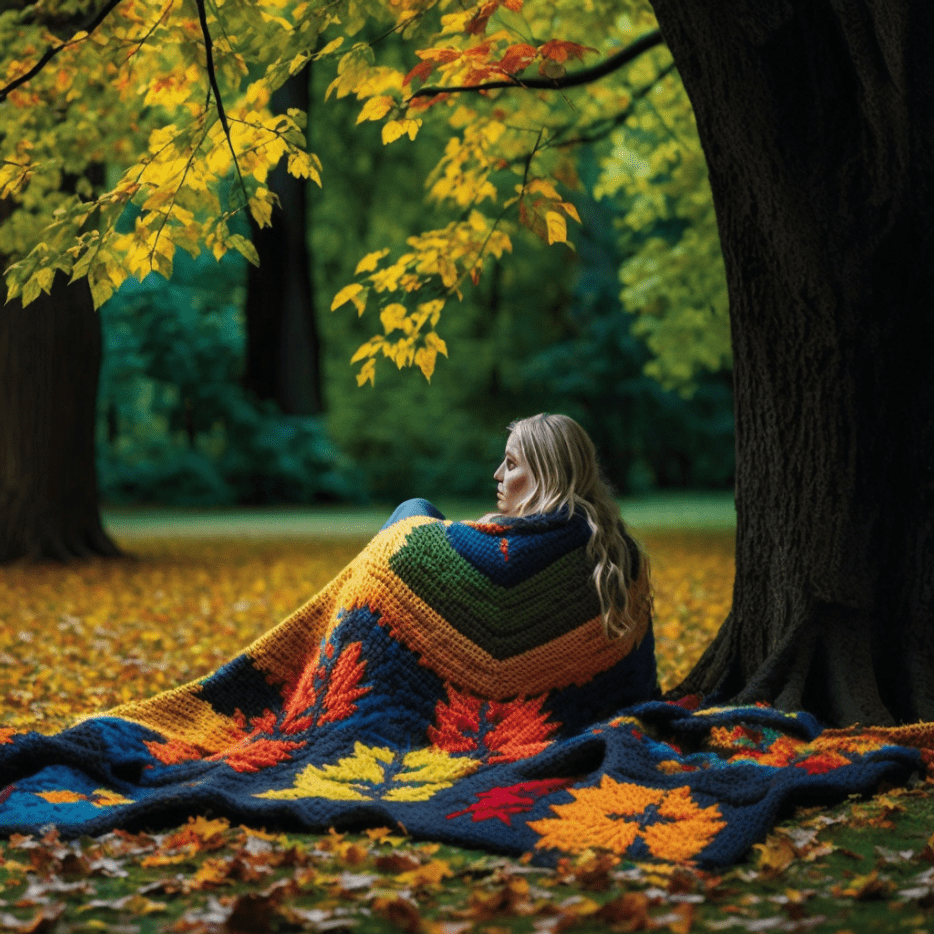
What are the classifications of yarn colors used in crochet blankets?
There are various classifications of yarn colors used in crochet blankets, but the most common classifications include:
1 Solid colors
Solid colors refer to yarns that are dyed in a single color. They are uniform in color and do not have any variations or patterns. Solid color yarns are commonly used in crochet blankets and other projects because they are versatile and can be used to create a variety of designs.
When using solid color yarns, the focus is often on the stitch pattern and texture of the blanket rather than the color. However, the color of the yarn can still play an important role in the overall design. Solid color yarns can be used alone or in combination with other colors to create different effects. For example, a solid color blanket can be accented with a border in a contrasting color or with stripes of different colors.
Solid color yarns are available in a wide range of colors, from bright and bold to soft and muted. This allows for a lot of creativity when designing a crochet blanket. Some popular solid color choices for crochet blankets include neutrals like white, gray, and beige, as well as pastel colors, jewel tones, and bold primary colors.
Overall, solid color yarns are a staple in crochet projects, including blankets, because of their versatility and ability to work well with a variety of stitch patterns and designs.
2 Variegated color
Variegated colors refer to yarns that have multiple colors in one skein. The colors can be arranged in a specific pattern or randomly mixed, and they create a beautiful effect when used in crochet blankets. Variegated yarns can have a subtle or dramatic effect on the overall design of the blanket, depending on the colors and how they are distributed throughout the yarn.
When using variegated yarns in crochet blankets, it’s important to consider the stitch pattern and the desired effect. Some stitch patterns may compete with the variegated colors, while others can enhance them. For example, a simple stitch pattern like single crochet may allow the colors of the variegated yarn to be the focus, while a more complex stitch pattern like the shell stitch may make the colors appear more muted.
Variegated yarns can be used alone or in combination with solid colors to create different effects. They can be used to create stripes or to add interest to a border or other design element. Variegated yarns are available in a wide range of colors and color combinations, from subtle pastels to bright, bold colors.
One advantage of using variegated yarns in crochet blankets is that they can create a beautiful effect without the need for frequent color changes. This can make the crochet process faster and more efficient.
Overall, variegated yarns are a popular choice for crochet blankets because they add interest and depth to the design, and they can be used in a variety of ways to create different effects.
3 Ombre colors
Ombre colors refer to yarns that transition from one color to another in a gradient pattern. Ombre yarns are often used to create a color gradient effect in crochet blankets, where the colors transition smoothly from light to dark or from one color to another.
Ombre yarns can be used to create a variety of effects in crochet blankets. For example, a blanket made with an ombre yarn that transitions from white to light blue to dark blue can create a beautiful ocean-inspired effect. An ombre yarn that transitions from yellow to orange to red can create a fiery sunset effect.
When using ombre yarns in crochet blankets, it’s important to consider the stitch pattern and the desired effect. Simple stitch patterns like single crochet or half double crochet may allow the color gradient to be the focus, while more complex stitch patterns like the basketweave stitch or the cable stitch may make the colors appear more muted.
Ombre yarns can be used alone or in combination with other yarns to create different effects. For example, an ombre yarn could be combined with a solid color yarn in the same color family to create a complementary effect.
Overall, ombre yarns are a popular choice for crochet blankets because they create a beautiful color gradient effect that can add interest and depth to the design. They are available in a wide range of colors and color combinations, making them a versatile option for a variety of crochet projects.
4 Self-striping colors
Self-striping colors refer to yarns that have multiple colors that are arranged in a repeating pattern. When used in crochet blankets, they create stripes of different colors without the need for frequent color changes.
Self-striping yarns are popular for crochet blankets because they can create a beautiful effect without the need for a lot of extra work. They are often used to create a gradient effect, where the colors gradually transition from one to another, or a bold stripe effect, where the colors contrast with each other.
When using self-striping yarns in crochet blankets, it’s important to consider the stitch pattern and the desired effect. Simple stitch patterns like single crochet or half double crochet may allow the stripes to be the focus, while more complex stitch patterns like the granny square or the chevron stitch may make the colors appear more muted.
Self-striping yarns can be used alone or in combination with other yarns to create different effects. They can be combined with a solid color yarn to create a border or accent stripe, or they can be used to create stripes in different directions.
Overall, self-striping yarns are a popular choice for crochet blankets because they create a beautiful effect with minimal effort. They are available in a wide range of colors and color combinations, making them a versatile option for a variety of crochet projects.
5 Tweed colors
Tweed colors refer to yarns that have a natural, rustic look, with a blend of fibers in different colors. Tweed yarns are often used in crochet blankets to create a warm, cozy, and timeless feel.
Tweed yarns typically have a base color, such as beige or gray, with flecks of other colors mixed in. The flecks can be subtle or bold, depending on the yarn, and they add interest and depth to the design.
When using tweed yarns in crochet blankets, it’s important to consider the stitch pattern and the desired effect. Simple stitch patterns like single crochet or half double crochet may allow the texture of the tweed to be the focus, while more complex stitch patterns like the cable stitch or the shell stitch may make the tweed appear more muted.
Tweed yarns can be used alone or in combination with other yarns to create different effects. They can be combined with a solid color yarn to create a border or accent stripe, or they can be used to create a textured stitch pattern.
Overall, tweed yarns are a popular choice for crochet blankets because they create a cozy and timeless look. They are available in a range of colors and color combinations, making them a versatile option for a variety of crochet projects.
6 Neon colors
Neon colors refer to very bright, intense, and fluorescent shades of color that are often used in crochet projects to create a bold and eye-catching effect. Neon colors can be found in many different types of yarn, including acrylic, cotton, and wool.
When used in crochet blankets, neon colors can be used to create a variety of effects. They can be used to create a pop of color against a more neutral background or to create a bold, high-contrast design. Neon colors can also be used in combination with other colors, either as accents or in a color blocking design.
When working with neon colors in crochet, it’s important to consider the stitch pattern and the overall effect. Simple stitch patterns like single crochet or half double crochet may allow the neon colors to be the focus, while more complex stitch patterns may make the neon colors appear more muted.
Neon colors can be a fun and vibrant addition to any crochet project, but they should be used in moderation to avoid overwhelming the design. Some people prefer to use neon colors as an accent or to create a border, while others may choose to use them more prominently in the design.
Overall, neon colors can add a fun and lively element to crochet blankets, but they should be used in a way that complements the overall design and style of the project.
These classifications are not mutually exclusive and can be used in combination to create unique and beautiful crochet blankets. Ultimately, the choice of yarn color depends on the individual’s preference and the desired effect of the finished project.
